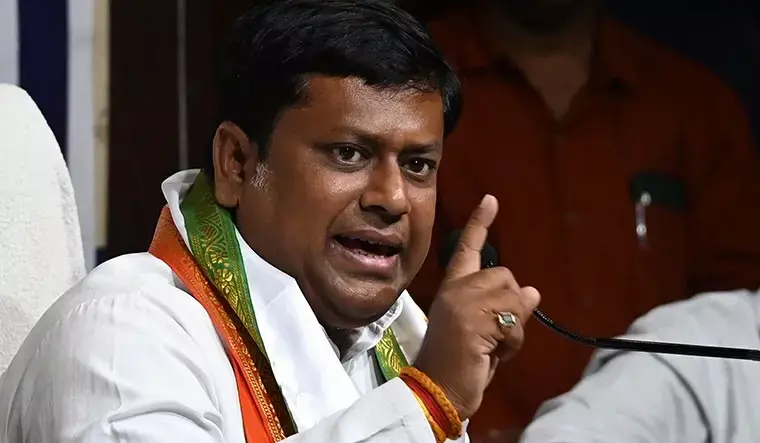
BJP’s Sukanta Majumdar’s remark ‘deplorable’: TMC
In a recent turn of events, the BJP’s state president, Dr Sukanta Majumdar, has found himself in the midst of a controversy after making a remark that has been widely criticized as “deplorable” and “obscene rhetoric” by the Trinamool Congress (TMC). During a confrontation with Kolkata Police on Friday in Bhabanipur, Majumdar referred to West Bengal’s legal system as “turning into Sonagachi’s sex work industry”.
Sonagachi is one of the largest red-light districts in Kolkata, and Majumdar’s comment was seen as an insult to the sex workers who reside there. The remark has sparked widespread outrage, with many condemning the BJP leader’s insensitive and derogatory statement.
The TMC’s Rajya Sabha MP, Sagarika Ghose, was among the first to react to Majumdar’s remark, describing it as “deplorable” and characteristic of the BJP’s “obscene rhetoric”. Ghose took to social media to express her disgust at Majumdar’s comment, saying that it was a reflection of the BJP’s “patriarchal and regressive” ideology.
Ghose’s criticism was echoed by many others, including several opposition parties and civil society organizations. The CPI(M) and the Left Front have also condemned Majumdar’s remark, calling it an “insult to the dignity of sex workers” and a “reflection of the BJP’s patriarchal and regressive ideology”.
The controversy surrounding Majumdar’s remark has also led to a fresh round of criticism against the BJP’s handling of women’s issues. The party has been accused of being insensitive to the concerns of women and of promoting a patriarchal ideology that seeks to control and restrict their freedoms.
The BJP’s handling of women’s issues has been a subject of controversy in recent years, with several incidents of sexual harassment and assault being reported from across the country. The party has been criticized for its failure to take effective action to prevent such incidents and for its consistent refusal to acknowledge the importance of women’s rights and empowerment.
Majumdar’s remark has also sparked a debate about the importance of sensitivity and respect in public discourse. Many have argued that political leaders have a responsibility to use language that is respectful and inclusive, and that such language should not be used to belittle or demean certain groups or individuals.
In recent years, there has been a growing trend towards the use of inflammatory and divisive language in public discourse, particularly in the context of politics. Such language can have serious consequences, including the perpetuation of stereotypes and the marginalization of certain groups.
The controversy surrounding Majumdar’s remark has also highlighted the need for greater sensitivity and respect in political discourse, particularly in the context of women’s issues. Political leaders have a responsibility to use language that is respectful and inclusive, and to avoid making comments that are likely to offend or demean certain groups or individuals.
In conclusion, Sukanta Majumdar’s remark has sparked a fresh round of controversy and criticism, with many condemning the BJP leader’s insensitive and derogatory comment. The controversy has also highlighted the need for greater sensitivity and respect in political discourse, particularly in the context of women’s issues. It is essential that political leaders use language that is respectful and inclusive, and avoid making comments that are likely to offend or demean certain groups or individuals.






